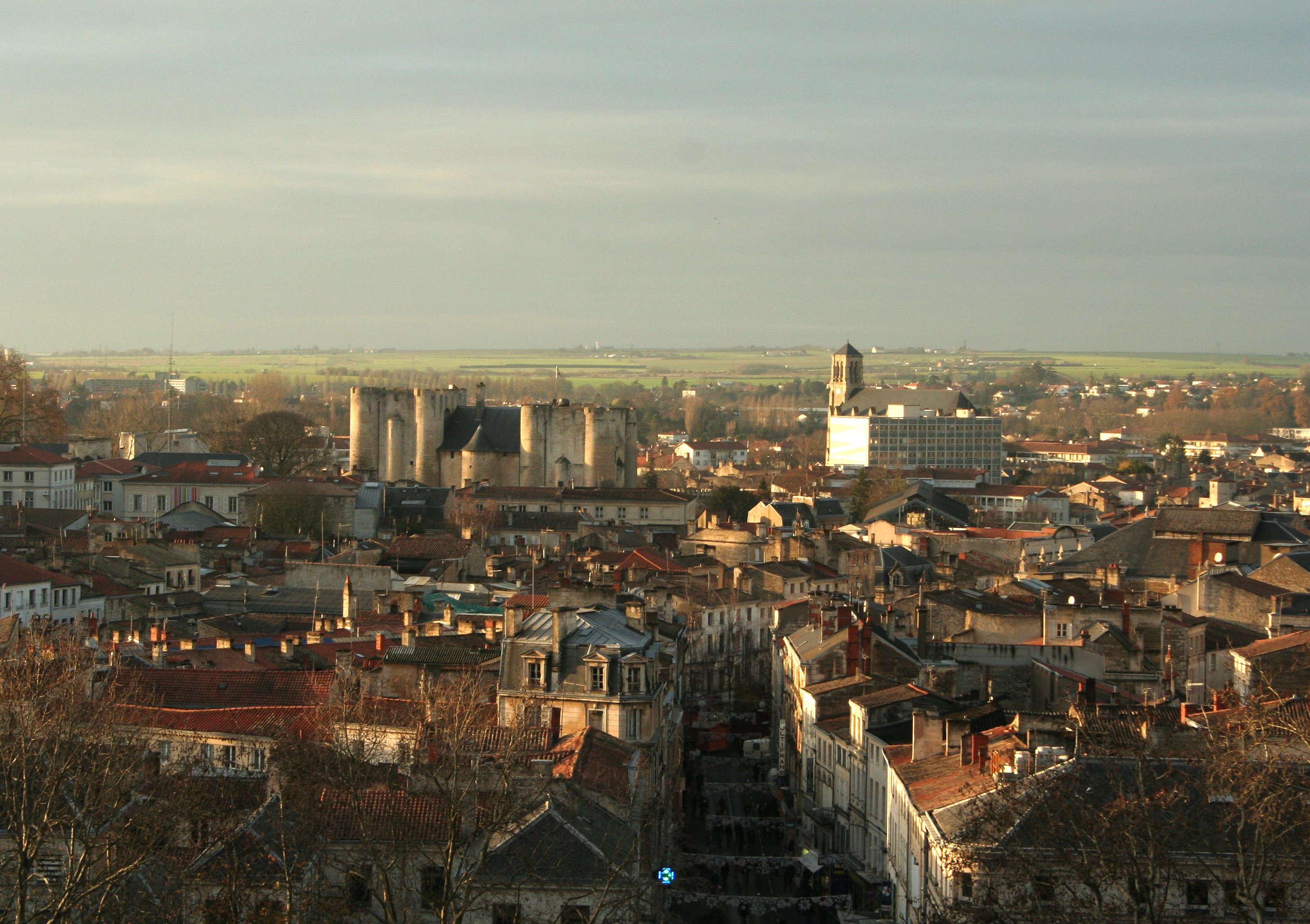English translated by P. Verdy himself
Texte Français par P. Verdy
 Jeffdelonge (Own Work) [GFDL (http://www.gnu.org/copyleft/fdl.html) undefined CC BY-SA 3.0 (http://creativecommons.org/licenses/by-sa/3.0)], via Wikimedia Commons
Jeffdelonge (Own Work) [GFDL (http://www.gnu.org/copyleft/fdl.html) undefined CC BY-SA 3.0 (http://creativecommons.org/licenses/by-sa/3.0)], via Wikimedia Commons
Who are you?
I currently live near Niort (central-western France) since some years, but I have lived in other places: Rennes (birth place) and its northern surburbs, Paris and its north-western suburbs, and worked temporarily in various places around Europe (notably London, Hamburg, or Milano), and the near Middle-East. I’m a professional computer engineer, more specialized in relational database applications development and maintenance, computer language designs, compilation and algorithmics (but working with a lot of technologies and computer languages), and I am very interested in localisation/internationalization with participation since many years in Unicode development and web standards. I’ve worked mostly in domains related to telecommunications, image/video encoding, platforms security, press/medias, advertizing, billing, commercial management and planning, and logistics. My native language is French, and I’m fluent in English, but I can read and work with most current languages of the world (only with more difficulties only for Arabic, however I know how to work with it)… and a few dead languages (latin, classical greek). Despite their apparent script complexity, Chinese or Japanese are extremely easy to work with, and even being able to produce some simple texts (European languages are in fact much more complex, including English !). My nickname on the OSM website/database and in the OSM wiki is just an abbreviated form of my real name.
When and how did you discover OpenStreetMap?
I can’t remember when, years ago. I think I may have seen some links or talks on Wikipedia or in searches for maps on the web. I still work sometimes on Wikipedia, Wiktionary, Wikisource, (MediaWiki wiki, Metawiki, Commons, mostly for structuring and indexing their contents and help internationializing them), and now also in Wikidata.
What do you map? Is there any difference with your early days?
I’ve regularly been interested in mapping complex projects over large areas, sometimes focusing more when I saw serious anomalies on the OSM map. I’ve no really dedicated places to map. Sometimes I will make very local adjustments (fixing or adding missing names, increasing the precision, but I also look for areas that really need work. I’ve participated to the mapping of the many boundaries in France, Belgium, Spain, Portugal and some African countries (Morocco, and Burkina Faso since several months), by looking for various sources and compiling/comparing them.
 Burkina Faso in OSM Boundaries
Burkina Faso in OSM Boundaries
How do you map?
I rarely do on-street surveys with tools. I’ll map some local areas just based on local knowledge and recent experience. Most of the time I’m working on OSM from home. I’ve found GPS to be not needed at all in my area in France where there are more accurate sources (and more extensive by their coverage) with more uniform quality (I do think that the world map on OSM should treat all areas with the same (growing) level of quality and completeness, but I also think that less populated and less developed areas need more external help. There are many less experimented users spread around the world that will focus on very local areas only if the general structure is already present and already useful for them. Unfortunately in my current region (mostly rural) there’s not a lot of participants to meet regularly (and sometimes temporary conflicts are unavoidable when working from remote locations). For the quality assurance, I frequently use Osmose and the JOSM Validator.
How do you conduct your surveys?
No method really applicable. This would require local meetings.
Where do you map? Locally, HOT?
Everywhere where it is needed and likely more urgent (not difficult to dig on the map!) or when there are recent important changes to do.
What is your biggest achievement as mapper?
As my work is spread in lot of areas, there’s no specific personal achievement that can be easily identified to my work. In fact I’ve always seen other mappers participating around the same zones. I won’t bring the cover on me alone when in fact what I do is to allow more participant to start working better and find their way on OSM, and continue the work (I will not consider my work finished). Documentation is very important, but my best achievement is on the OSM wiki where I’ve patiently made it really really international, with many more languages supported correctly indexed and navigatable, and facilitating the work of translators (that won’t need to fix tricky technical details), allowing more people around the world to contribute usefully to OSM map data in their area using the language they are more confident with, and better learn how to use OSM and its tools, or simply finding more local cooperations and supports for their activities.
Why do yo map? What motivates you?
I map and help mappers because I’m fed up of seeing old outdated proprietary maps and of seeing Google Maps taking the lead on everything on this field, and filtering its results based on user profiling (or its own commercial strategies) just to promote things that only the largest and most influent companies will accept to pay to Google to be seen on its map. And outside of this, many areas in the world (and even in rural areas that are left over in more developed countries) need accurate maps for their local development and better/more efficient planification and organization of work and cultural activities.
What is the most difficult part of mapping?
The most difficult parts are those about large areas. They require tools that are not accessible to online editors (Potlatch, and now iD). Learning to use another editor (like JOSM) was not difficult for me, but it’s true that I’ve a large technical background and I’m never scared about some technical details. Staying motivated may be sometimes more difficult and quite frustrating when other people do not understand the huge work that represent fixing technical details and they see a lot of very minor changes which do not seem useful from their local perspective.
What are your mapping plans for the near future?
I hope terminating completing all the communes in Burkina Faso (I’ve delimited almost all of them, basically based on listes of villages as there’s currently no data available with more precision, but by following some natural features when they are visible, such as rivers ; these data remain approximative but with a precision that should not exceed the kilometre : local contributeurs may still refine these borders, but there are still missing villages to geolocalize, that I’ve listed as much as possible in their commune), and finishing the job of listing and geolocating more accurately all their villages (many of them were massively imported with lots of errors or confusions from outdated and incomplete old databases that were actually never checked and compared with other sources). Adding some important natural features (notably rivers) will also really help improve the accuracy. I’ll continue working on larger administrative reforms. France as whole will still remain a favorite area (but now that France has many accurate/extensive free opendata sources more of this work will be performed with specific tools). Improving the documentation seems to be more important for organizing how work will be performed locally and globally, and explain why some past decisions were made or know which ones could be phased out.
Do you have contact with other mappers?
On the wiki, on the French OSM mailing list, on the OSM website discussions.
Do you use OpenStreetMap yourself? How?
Yes for various projects (I can’t speak about private projects), including to help some local associations integrate a map on their website (without paying Google, or depending on Google decision to hide them!).
Do you do anything else than mapping that is related to OpenStreetMap?
Wikidata, geographic classification and some images on Commons or Wikipedia.
To conclude, is there anything else you want to mention?
Let’s just talk together when we have problems or don’t understand things. And let’s give more power and means to local contributors to add what they want to see and promote. This OSM map is for everyone et not intended only for some officials.

Discussion
Comment from nikiforov on 5 January 2017 at 17:48
didn’t know about Osmose, thank you! :o